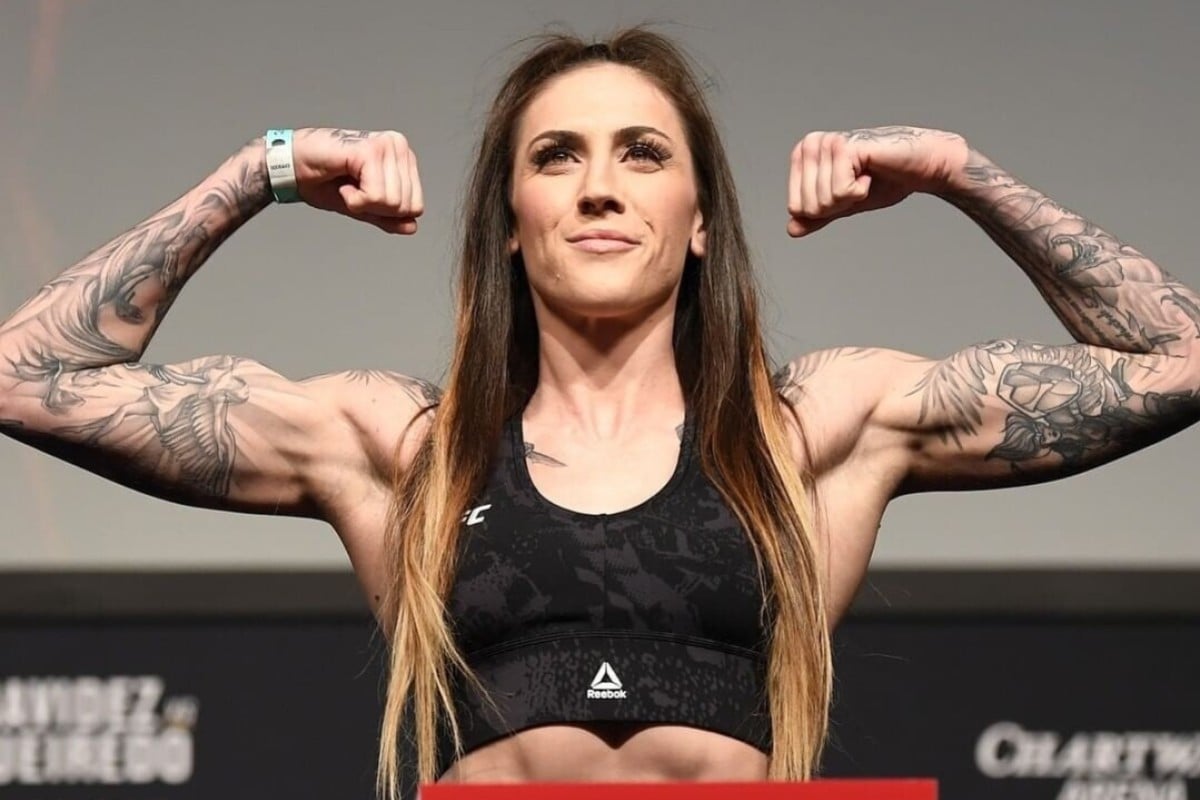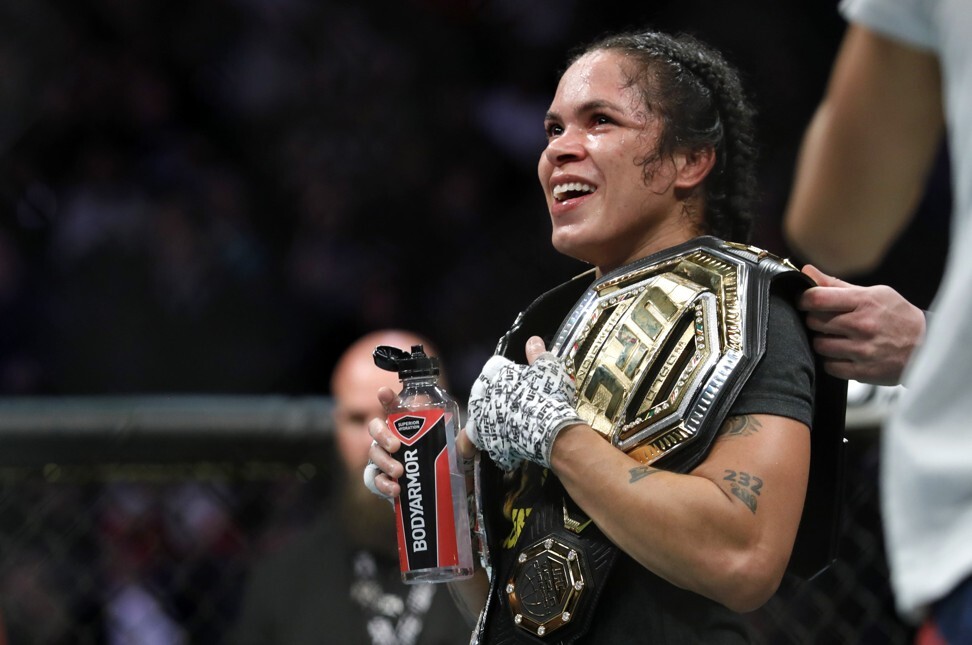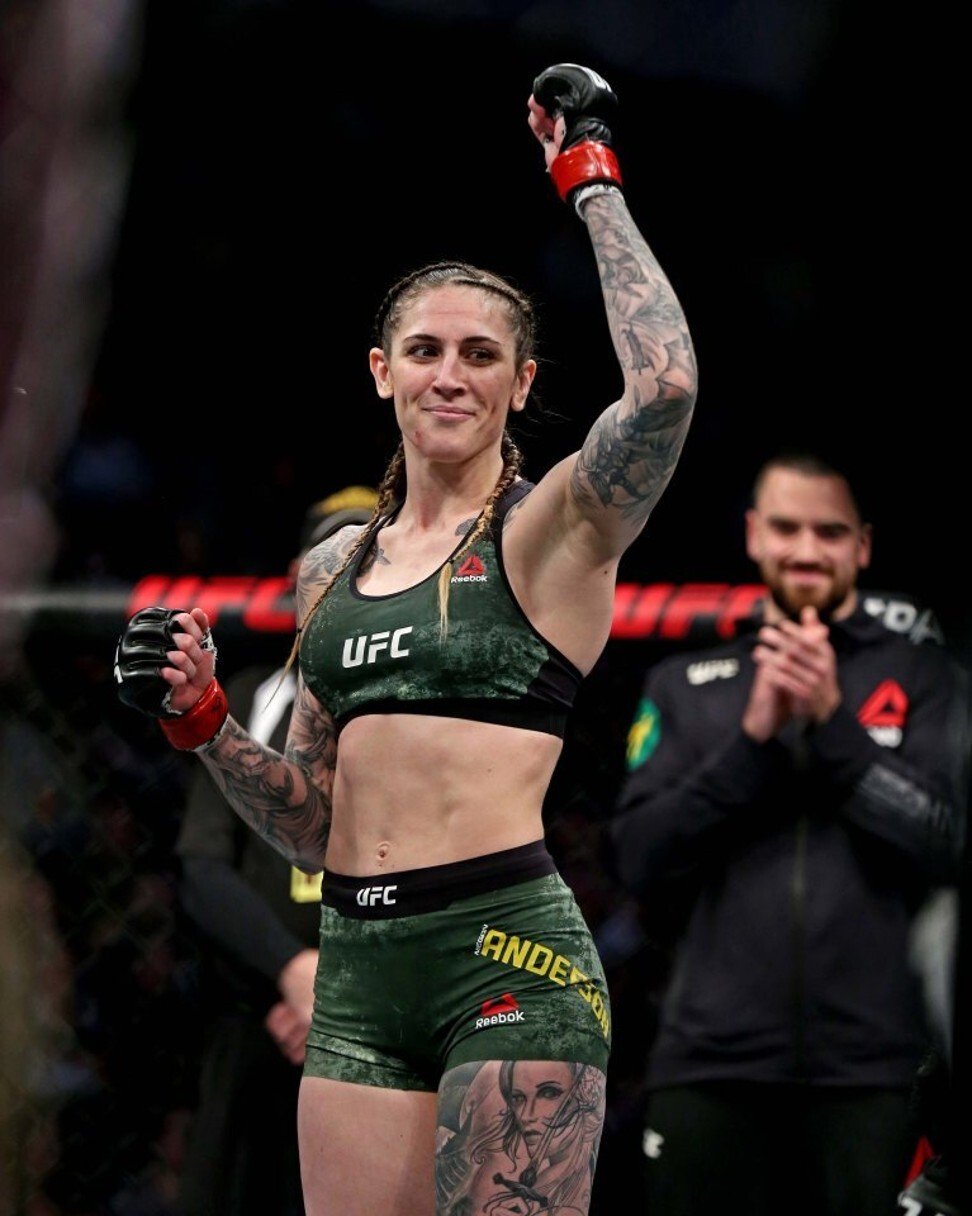
The buzz had been building around featherweight prospect Megan Anderson before the UFC took its enforced break because of the coronavirus crisis, with the Australian delivering a first-round knockout of Brazil’s Norma Dumont Viana that may well have altered the trajectory of her fight career.
At 30, and with an 11-4 record that includes back-to-back wins with the UFC, Anderson looks set for a collision course with reigning champ Amanda “Lioness” Nunes (19-4), holder also of the bantamweight belt and ranked No 1, pound-for-pound, among all women.
It’s a daunting enough prospect on paper, let alone when considering the real-life prospect of facing down the 31-year-old Brazilian phenom inside the Octagon.
“The road leads to Amanda,” says Anderson. “I’m not a traditional boxer or Muay Thai fighter. I stance switch. I set traps. I constantly change my timing and am offbeat on my punches. People think I’m slow, but I don’t think so. I just move differently. I’m constantly mixing it up and what I can match Amanda with is power. That will be the game-changer.”

What makes Anderson’s rise to prominence with the UFC all the more remarkable is the battles she has faced outside the cage, and how openly – and publicly – she now embraces those struggles.
Anderson’s childhood on Australia’s Gold Coast was shadowed by a father who was struggling with alcoholism – a battle that, she reports, has thankfully taken a positive turn. But throughout her youth Anderson had been haunted by anxiety and depression and, a decade ago this year, there was a suicide attempt during the time Anderson was training to be an officer in the Australian Army.
Much of this had been unknown, outside’s Anderson’s inner circle, until the fighter opened up to the world during an interview on Ariel Helwani’s MMA Show last December, saying the experience of being under the army’s strict control had left her “mentally broken”.
“My interview with Ariel was where it all came out,” Anderson says. “There were things there I hadn’t even mentioned to my therapist. A lot of things about my suicide attempt, the effect it had on family, I had never said that to anyone. It was incredibly scary.
“Part of me doesn’t want people to think I am a weak person because I don’t consider myself a weak person. But there can be a strength in vulnerability and in accepting it. If I can help people by telling my story it doesn’t cost me anything.”
Anderson found her way into martial arts a few years after leaving the army, and credits combat sport with helping her find the inner strength and the confidence to “deal with my demons”. She also made choices in terms of the people she surrounded herself with.
“There had been people around me who were toxic,” says Anderson, speaking from her home in Kansas City, Missouri. “Once I realised that and got out of those situations, it was a night and day difference.”
Five years ago, Anderson made the move to the United States to further her fight career, taking up life under the tutelage of the veteran UFC lightweight James Krause (27-8) at Glory MMA & Fitness.

“Martial arts helped me get to a certain point and then to get to where I am now it was more on the personal side of things,” she says. “Moving definitely made me focus 110 per cent on the life I have chosen. I don’t really have a lot of distractions here. I’m building relationships, making a home for myself. But in a sense it has been incredibly hard as well.
“The training was just at a different level. It’s what I moved here for, but I’m not sure I was ready for it. And I’d FaceTime’d my mum every single day for the first four months. I just had so many doubts.”
Anderson believes the work with Krause is paying off, as shown by the highlight-reel KO of Viana (4-1) in January. Growing fame for her exploits inside the cage and an-ever expanding social media community are also allowing Anderson to reach out to those who might be struggling with the mental issues she continues to work with – and on – every day.
“It’s about accepting yourself as a person,” she says. “There are things that we all do that we hate about ourselves or that we regret. But it’s about giving yourself grace, forgiving yourself and being kind to yourself. Being truthful and 100 per cent authentically you, I think that’s such a great feeling.
“I get that a lot of my life is on display to the world, and I try to be honest about the mental health issues as much as possible. A lot of it is about being OK with the kind of person that I am, of loving that. It might take a lot of effort to get there, but I think that is something worth striving for.”
Anderson dropped her first fight with Invicta FC on moving to the US, but rebounded and went on to claim the promotion’s featherweight championship. She was beaten first up by former champion Holly Holm (13-5) on her UF debut, but is now eyeing another title shot.
“I feel I’m getting the performances now I know that I am capable of. I’m a big believer that I beat myself before anyone could beat me.
“I am on a tear right now. It’s a different mindset we are bringing, and it’s a different era for me.”







